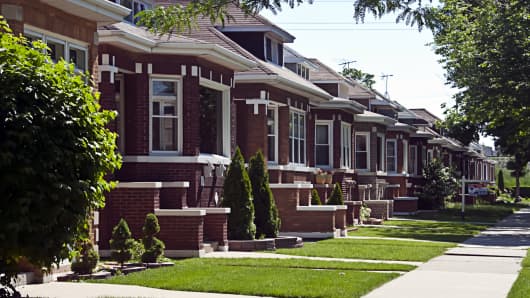Boomers are also looking for walkability, proximity to public transit and diversity. They also want to be closer to their children, who generally head to cities right after college. This is a big change from their parents, who often headed to warmer areas to retire.
"The previous generation had a very tense relationship. The Boomers, with their parents, was not a close comfortable relationship because the Boomers had been an iconoclastic, rebel generation," McClain noted. "They [Boomers] are much closer with their kids."
(Read More: Hitting 65, Boomers Seek Out 'Retirement Coaches')
Seeing the trend, developers are working fast to cash in. Construction in urban areas is booming again, and secondary urban markets, once considered suburbs, are taking shape.
In Bethesda, Md., just minutes outside Washington, DC, cranes dot the downtown, as hundreds of new condominium and rental apartments go up. High-end retailers like Apple, Lululemon, and North Face have moved in, as planners create European-style walking plazas with outdoor eateries.
"Apartment growth in the last 24 months has been significant in Washington, and we are confident that in that growth," said John Tschiderer, vice president of development at Federal Real Estate Investment Trust, a Maryland-based REIT. "The product we are delivering in the locations we are delivering are going to meet our investment opportunities and our strategy."
(Read More: Defying Gravity: Miami Condos Flying High Again)



